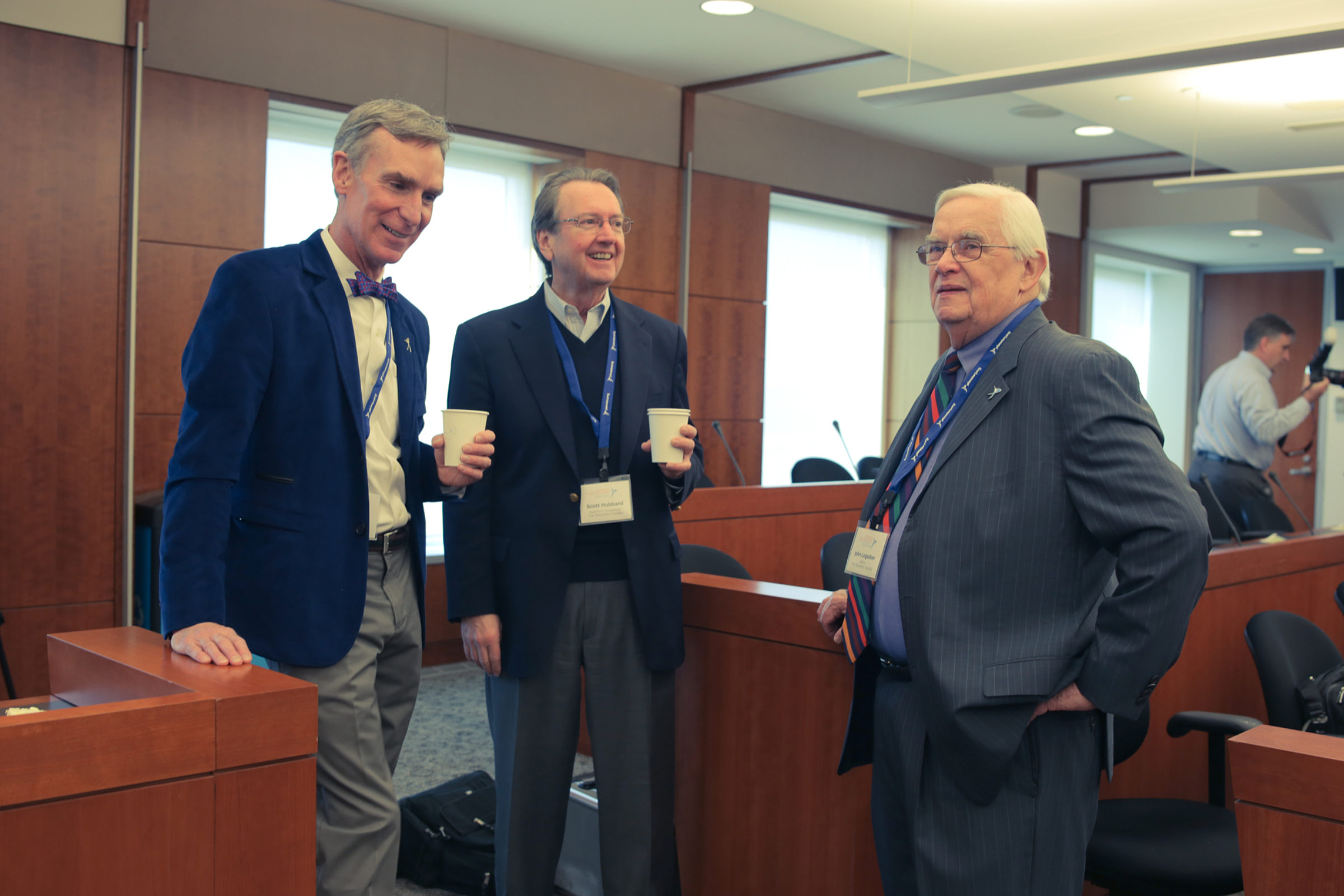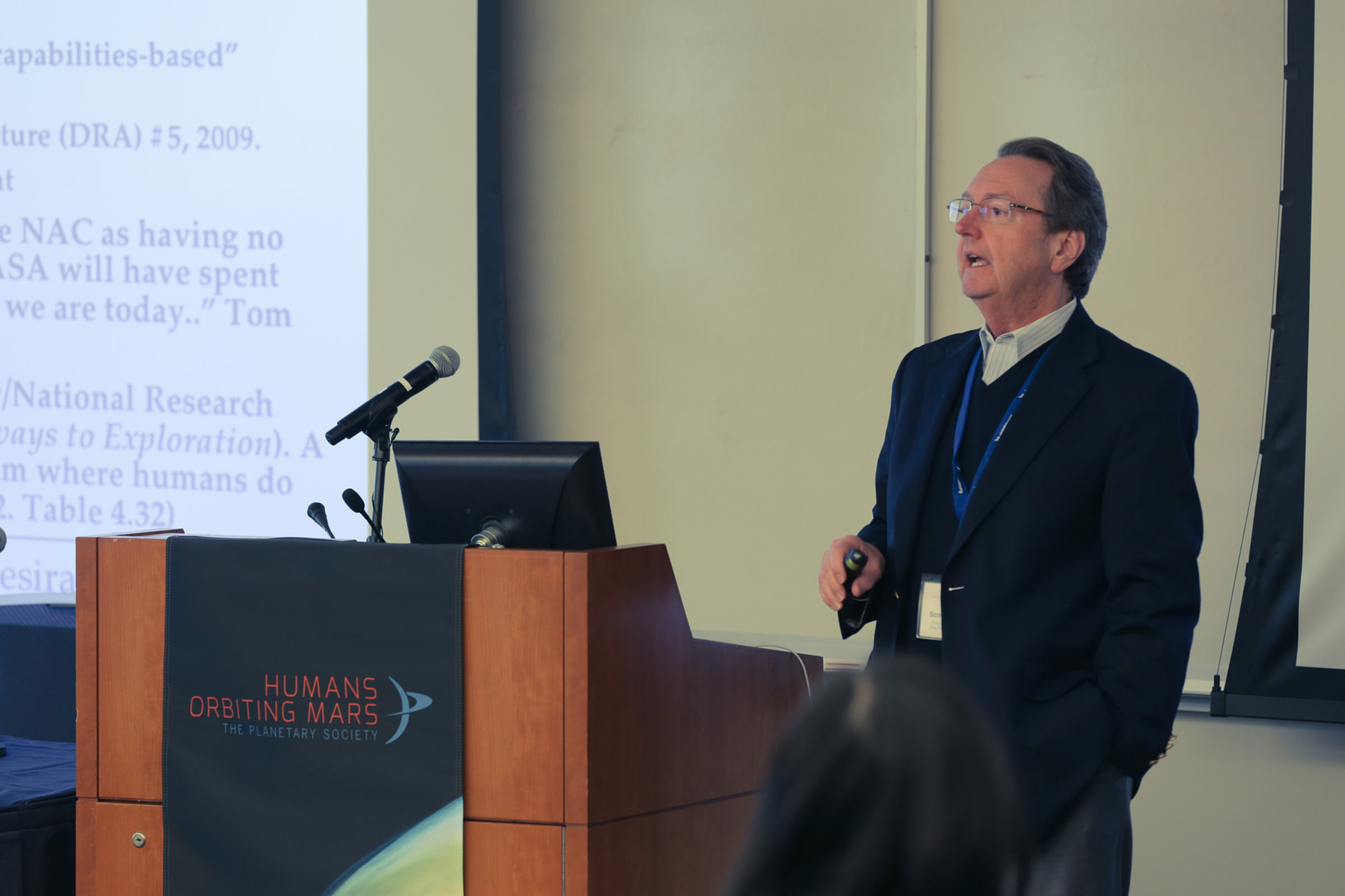Bill Nye & The Planetary Society Announce “Humans Orbiting Mars” Workshop Results
Senior Space Community Professionals Address Strategy to Send Humans to Mars
Media Advisory
April 02, 2015
Contact
Erin Greeson
Phone: +1-626-793-5100
Washington, D.C. (April 2, 2015) – The Planetary Society CEO Bill Nye (The Science Guy®) and members of the Society’s Board of Directors today announced results of the ”Humans Orbiting Mars” workshop. The goal of the workshop was to gather expert science, engineering, and policy professionals to build consensus on the key elements of a long-term, cost constrained, executable program to send humans to Mars.
“Getting humans to Mars is far more complex than getting to Earth’s Moon,” said Nye. “But space exploration brings out the best in us. By reaching consensus on the right set of missions, we can send humans to Mars without breaking the bank.”
“We believe we now have an example of a long term, cost constrained, executable humans to Mars program,” said Professor Scott Hubbard, workshop chair and Department of Aeronautics and Astronautics, Stanford University. “This workshop was an important step in community-building among the many groups interested in Mars science and exploration.”
“While the conditions for another Apollo-era Kennedy moment don’t exist, we have a highly skilled scientific engineering and policy community that is eager to get going on sending humans to Mars,” said Dr. John Logsdon, workshop co-chair and professor emeritus, Space Policy Institute, Elliott School of International Affairs, George Washington University. “We believe the consensus points achieved during this workshop can get us moving down the path to the Red Planet.”
As a result of workshop discussions, 70 attendees reached consensus on the following points:
- A credible plan for a long term Humans to Mars program that constrains costs by minimizing new developments was presented.
- For a sustainable, executable, and successful Humans to Mars program, an orbital mission in 2033 is required.
- An orbital mission will enable scientific exploration of Mars and its moons while developing essential experience in human travel from Earth to the Mars system.
- An independent cost estimate showed that such a program would fit within a budget that grows with inflation after NASA ends its lead role in the International Space Station.
- Landing humans on Mars can affordably and logically follow later in the 2030s.
- There will be both scientific and public support for this orbit-first approach.
- Pursuing this orbit-first approach will establish a framework for involving the private sector and international partners, and will create a unified Mars science and exploration community.
A full report on the “Humans Orbiting Mars” workshop will be released later in the year.
Media Resources:
Workshop Program and Speaker Bios (PDF)
Photography (click thumbnails for full-size images)
Photo Credit: Tushar Dayal for The Planetary Society

###
The George Washington University’s Elliott School of International Affairs is one of the world’s leading schools of international affairs and the largest school of international affairs in the United States. Located in the heart of Washington, D.C., its mission is to educate the next generation of international leaders, conduct research that advances understanding of important global issues, and engage the policy community in the United States and around the world. In the January/February 2015 issue of Foreign Policy, the Elliott School of International Affairs’ undergraduate and master’s programs were ranked among the top ten international affairs programs in the United States by the Teaching, Research, and International Policy (TRIP) survey.
About The Planetary Society
With a global community of more than 2 million space enthusiasts, The Planetary Society is the world’s largest and most influential space advocacy organization. Founded in 1980 by Carl Sagan, Bruce Murray, and Louis Friedman and today led by CEO Bill Nye, we empower the public to take a meaningful role in advancing space exploration through advocacy, education outreach, scientific innovation, and global collaboration. Together with our members and supporters, we’re on a mission to explore worlds, find life off Earth, and protect our planet from dangerous asteroids. To learn more, visit www.planetary.org.
###


 Explore Worlds
Explore Worlds Find Life
Find Life Defend Earth
Defend Earth






